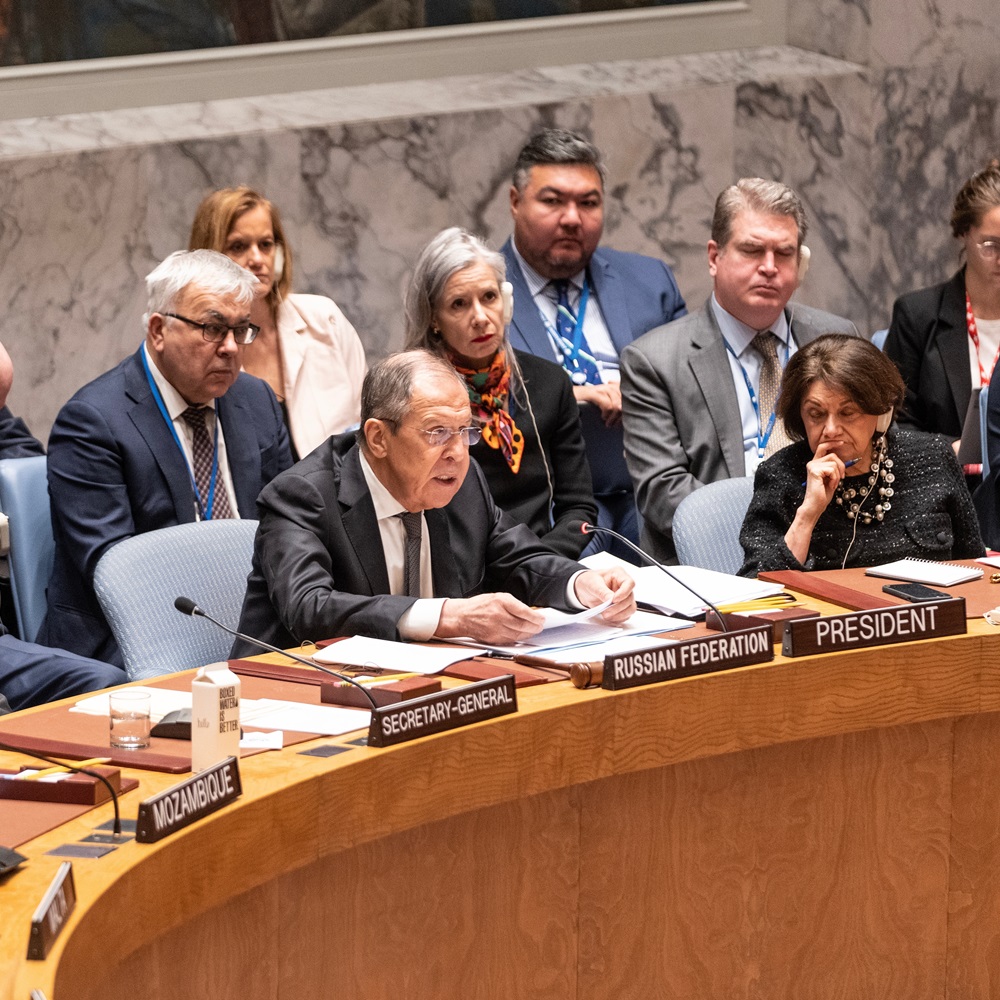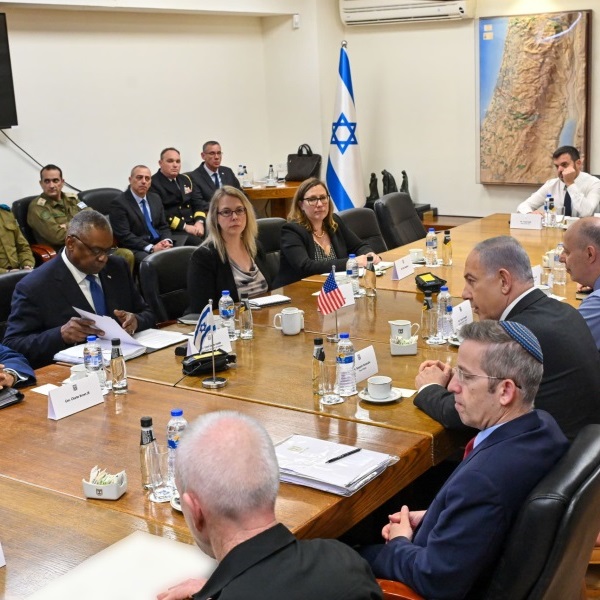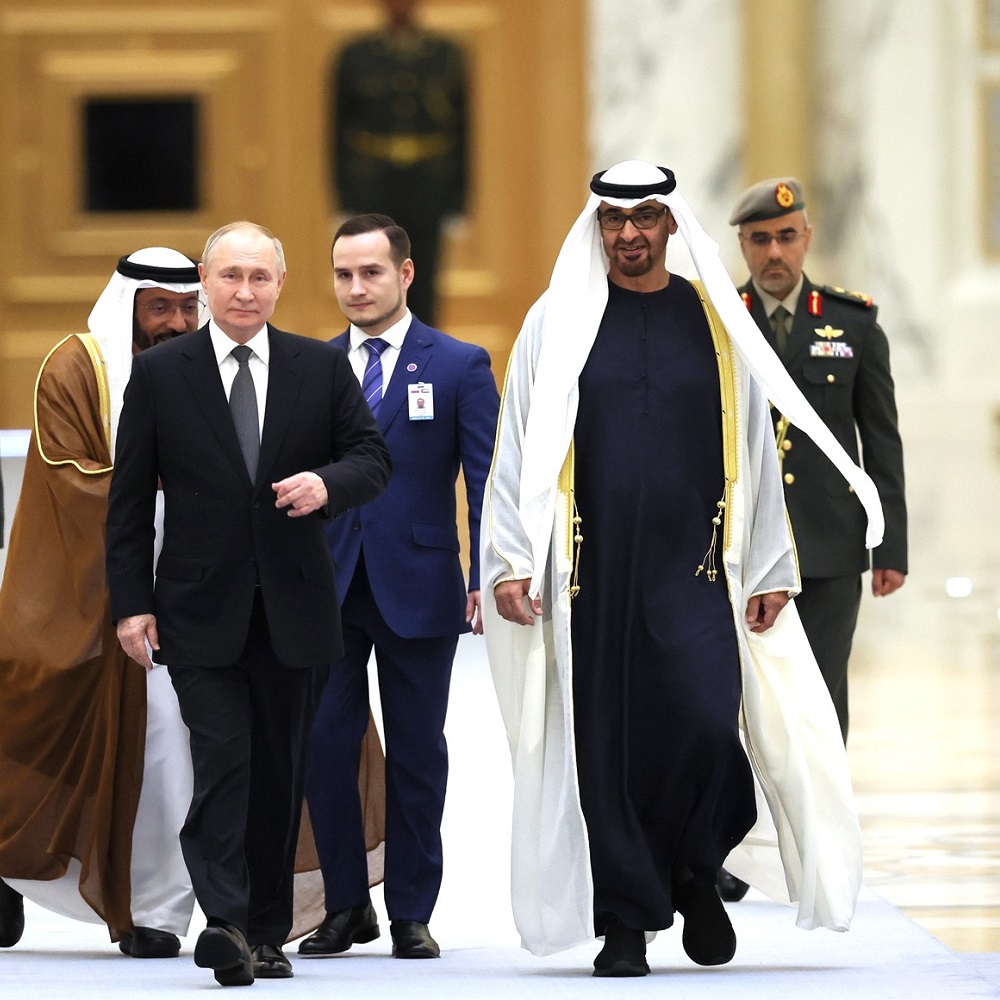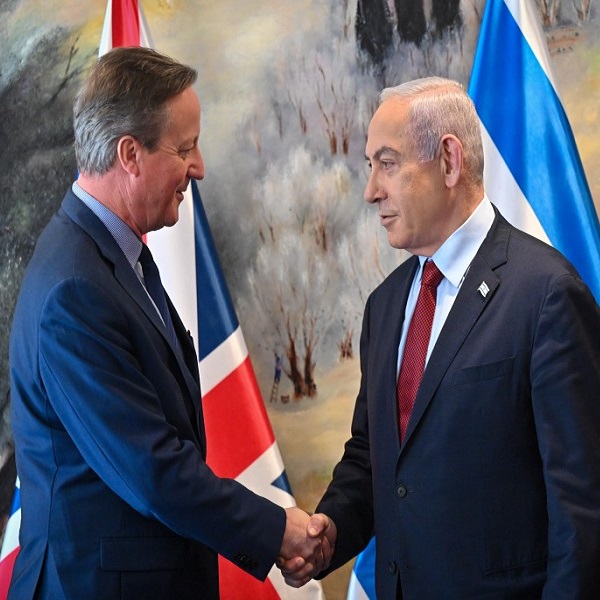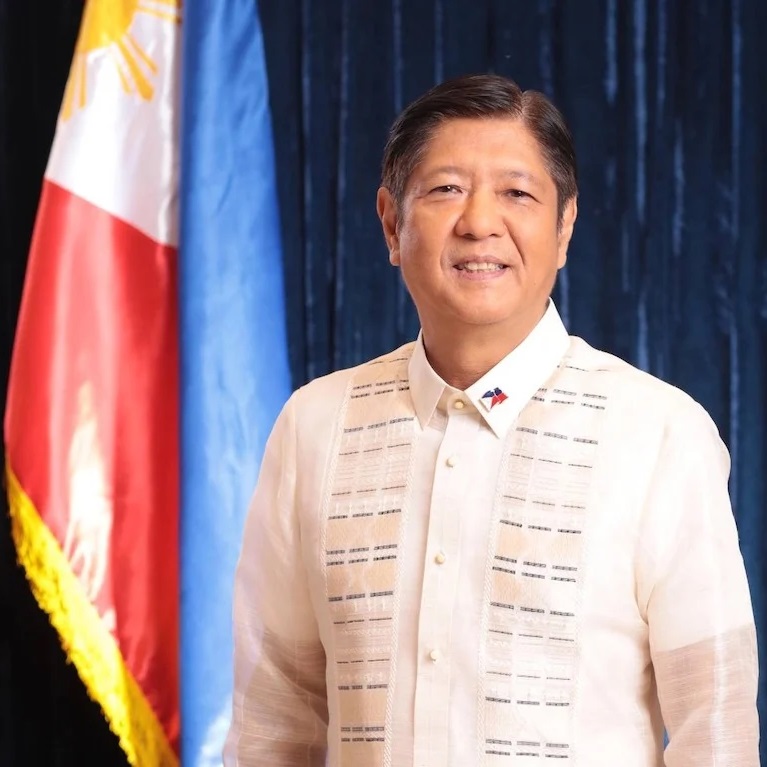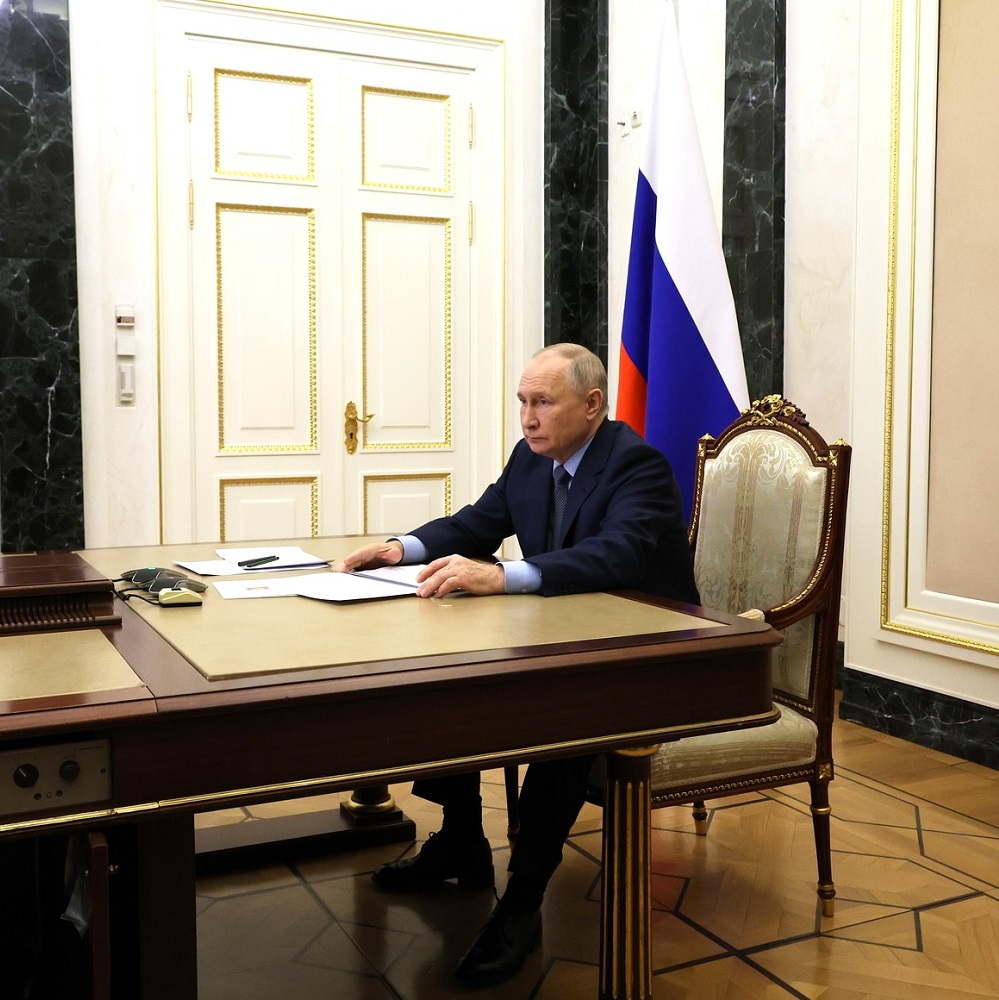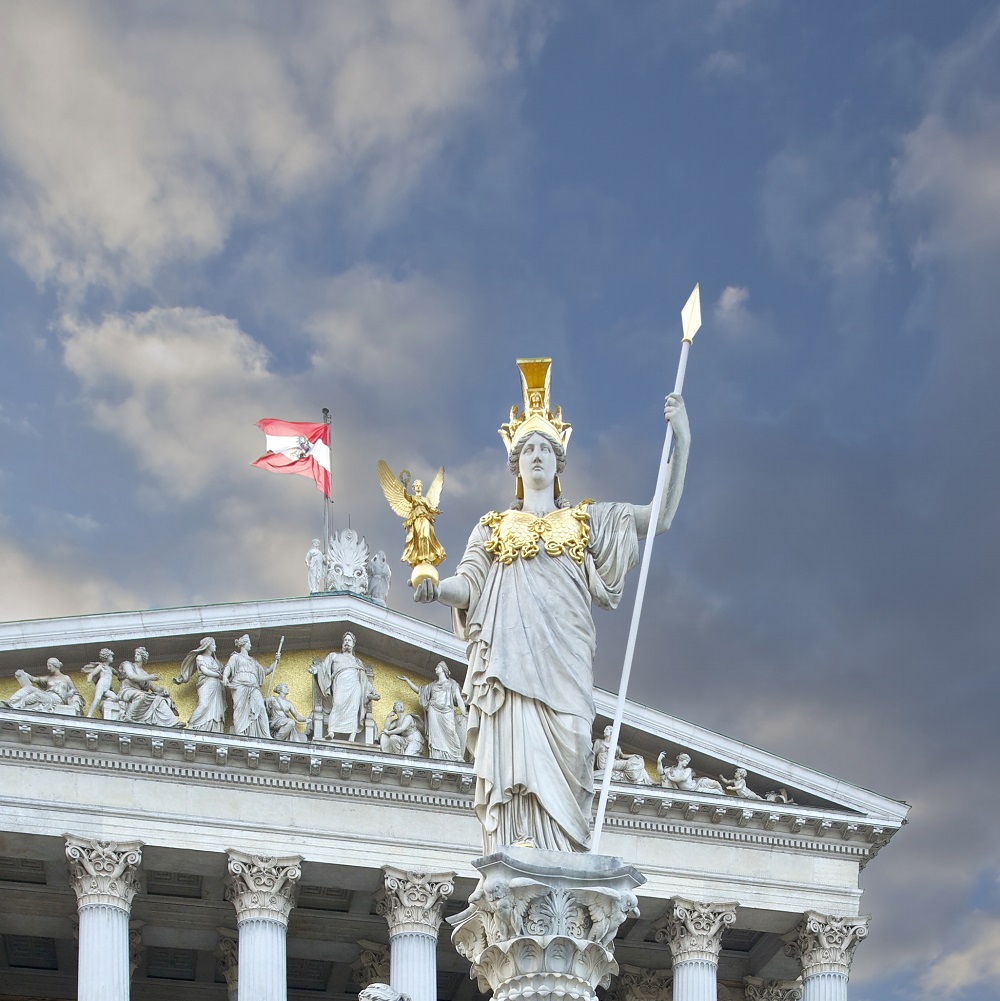Statement by Foreign Minister Sergey Lavrov at a UN Security Council Open Debate on the Situation in the Middle East, including the Palestinian question, New York, July 17, 2024v
by Sergey Lavrov
한국어로 읽기Leer en españolIn Deutsch lesen
Gap
اقرأ بالعربيةLire en françaisЧитать на русском
I would like to extend a warm greeting to the ministers and other senior representatives who are present in the Security Council Chamber. Their participation in today’s meeting confirms the persisting relevance of the topic under discussion.
In accordance with Rule 37 of the Provisional Rules of Procedure, I would like to invite the representative of Australia, Bahrain, Bangladesh, Belgium, the Plurinational State of Bolivia, Brazil, Chile, Colombia, Cuba, Egypt, India, Indonesia, the Islamic Republic of Iran, Iraq, Ireland, Israel, Jordan, Kazakhstan, Kuwait, Lebanon, Libya, Liechtenstein, Malaysia, Maldives, Mauritania, Mexico, Morocco, Namibia, New Zealand, Nicaragua, Norway, Oman, Pakistan, Peru, Philippines, Portugal, Qatar, Saudi Arabia, South Africa, Spain, Sri Lanka, Syrian Arab Republic, Thailand, Timor-Leste, Tunisia, Türkiye, UAE, Uganda, the Bolivarian Republic of Venezuela, and Vietnam, to participate in this meeting. It is so decided.
In accordance with the Provisional Rules of Procedure and established practice, I propose that the Council invite the Permanent Observer of the State of Palestine, which has observer state status at the United Nations, to participate in the meeting. There are no objections, it is so decided.
In accordance with Rule 39 of the Provisional Rules of Procedure, I would like to invite E.Rattray, Chef de Cabinet of the Secretary-General, to take part in this meeting.
I would also like to invite the following persons to take part in this meeting:
– His Excellency Mr Maged Abdelaziz, Permanent Representative of the League of Arab States to the United Nations,
– His Excellency Mr Sven Koopmans, Special Representative of the European Union for the Middle East Peace Process,
– His Excellency Mr Sheikh Niang, Chairman of the Committee on the Exercise of the Inalienable Rights of the Palestinian People.
It is so decided. The Security Council begins considering Point 2 on the agenda. The floor goes to Mr Courtenay Rattray.
***
Ladies and gentlemen,
Your excellencies,
The Middle East is facing unprecedented risks for the security, well-being and peaceful life of its peoples. The waves of violence surge far beyond the area of the Arab-Israeli conflict destabilising the situation in the Persian Gulf, Red and Mediterranean Seas, and in North Africa.
We need a frank and honest conversation about how to stop the bloodshed and sufferings of the civilians without delay and move towards a long-term solution to both long-standing and relatively new conflicts.
Our country has been historically maintaining good relations with all the countries in the region. The USSR was the first state to recognise Israel de facto and de jure, having established diplomatic relations shortly after it declared independence in May 1948. Meanwhile, Moscow invariably advocated the creation of an independent and viable Palestinian state and the realisation of the Palestinians’ legitimate and fundamental right to self-determination. In 1949, we supported Israel's application for UN membership, subject (I emphasise this) to the implementation of General Assembly Resolutions 181 and 194 on the Palestine Partition Plan and the right of return of Palestinian refugees. This was clearly stated when we voted in favour of Israel's admission to the United Nations. Likewise, today we support Palestine's admission to our Organisation. Its sovereignty as a state has already been recognised by nearly 150 countries that are UN members.
We stand for the position based on the rules of international law within the framework of various international formats for the settlement of the Palestinian-Israeli conflict and, more broadly, the Middle East conflict. We proceed from the imperative of implementing the UN decisions, including the first General Assembly resolutions mentioned above and key Security Council Resolutions 242 and 338, adopted after the end of the Six Day War and the Doomsday War, as well as Resolutions 478 and 497 on the status of Jerusalem and the Golan Heights.
We attach special importance to the dialogue with Arab countries and their neighbours Iran and Türkiye. From the very beginning we appreciated the constructive potential of the Saudi Arabian peace initiative announced in 2002. At the same time, we respected the decision of a number of Arab countries to bring their relations with Israel back to normal even before settling the Palestinian question. We advocated the inclusion of pan-Arab and Islamic organisations – the LAS and the OIC – in the collective efforts under the Quartet of international mediators, which, unfortunately, was "buried" under the ruins of the US "Deal of the Century."
The history of the colonial and mandated territories of the Middle East and North Africa has been and remains a heavy burden for the regional countries. The Sykes-Picot Agreement, the Balfour Declaration and the White Paper have planted the time bombs that have been exploding since then. The situation has been further complicated by new Western geopolitical experiments. We firmly believe that the regional countries should themselves choose their paths towards stronger sovereignty and independence, as well as socioeconomic development for the benefit of their nations without foreign interference. This would open up the global historical, civilisational, religious and cultural significance of the Middle East and North Africa in the interests of peace and stability.
The Palestinian problem is the most pressing issue today.
It is the fourth time in the past 10 months that the UN Security Council is holding a ministerial meeting. It has adopted four resolutions, but the continuing bloodshed in the occupied Palestinian territories shows that all these decisions remained on paper.
Russia has consistently denounced all manifestations of terrorism. We implicitly condemned the terrorist attack on Israel on October 7, 2023. However, we regard the current developments in Gaza as unacceptable collective punishment of the civilian population.
A military mopping up operation has been underway for nearly 300 days in the Gaza Strip, the most densely populated area in the world that has been known for years as an open-air prison.
The statistics of death and destruction of the large-scale military operation, which Israel is waging jointly with its American allies, is shocking. Over the past 10 months or 300 days, nearly 40,000 Palestinian civilians have been killed and 90,000 wounded. The majority of them are children and women. This is twice as many as the number of civilian victims on both sides of the conflict in southeastern Ukraine over the past 10 years. The number of civilian victims [in Gaza] over the past 10 months is twice as large as the number of civilian victims in Ukraine over the past 10 years since the state coup in February 2014. According to the Independent International Commission of Inquiry that examines violations of international human rights law, Palestinians aged below 18 make up approximately half of Gaza’s population. It means that they were born and grew up in conditions of a total blockade. Apart from the current escalation of violence, they have seen other Israeli military operations, namely Summer Rains and Autumn Clouds in 2006, Hot Winter and Cast Lead in 2008-2009, Pillar of Defence in 2012, Protective Edge in 2014, and Guardian of the Walls in 2021.
Gaza is in ruins today. Residential buildings, schools and hospitals have been turned into rubble, and the critical civilian infrastructure facilities have been knocked out of service. There is an epidemic of infectious diseases and mass hunger there. It is a real humanitarian disaster. There is no safe and reliable access to the victims and those in need amid the ongoing hostilities.
The number of casualties among the humanitarian staff of the United Nations and NGOs is approaching 300. This is the largest one-time loss for the UN in modern history. Many of these people have been killed together with their families. We express our condolences to their families and loved ones, as well as to their colleagues.
On May 7, Israel began the operation in the city of Rafah, the last shelter for the 1.5 million Palestinians who have fled there from all over Gaza. The Rafah crossing was closed, again turning the Gaza Strip into “the only conflict in the world in which people are not even allowed to flee.” UN Secretary-General Antonio Guterres said this in 2009, when he was the UN High Commissioner for Refugees. The situation has not improved since then. It is only deteriorating.
The use of crossings in the Israeli territory has been hindered by major restrictions. The volume of cargo allowed to use them has plummeted compared to the pre-confrontation period, even though the requirements have seriously decreased.
The situation in the West Bank and East Jerusalem is also dramatic, with military raids by the Israeli military and the settlers’ aggression, which leads to casualties on both sides. Contrary to UN Security Council Resolution 2334, Israel has not slowed but is accelerating the construction of illegal settlements. In addition to seizing Palestinian land and destroying their houses, Israel is retroactively legalising settlements there, even though their establishment has been declared illegal by Israel’s legislation.
Such unilateral actions to create irrevocable “facts on the ground,” as Chef de Cabinet of the Secretary-General Courtenay Rattray said, amount to a gross violation of Israel’s responsibilities as an occupying power. I would like to point out that, ironically, these responsibilities are rooted in the Geneva Conventions adopted 75 years ago to protect Jews, who had been subjected to inhuman suffering during the Second World War, and to prevent future persecution of people on grounds of ethnicity.
Colleagues,
The current unprecedented outbreak of violence in the Middle East has largely been caused by the well-known US policy in the region. This is the result of US diplomacy about the “effectiveness” of which US representatives have been telling us for the past ten months demanding that work at the UN Security Council be curtailed. My colleague, US Secretary of State Antony Blinken, also made this call. They are using their veto right time and again to block calls for an immediate and all-encompassing ceasefire.
When UN Security Council Resolution 2728 on a ceasefire during the Ramadan holiday was adopted, the United States promptly stated that this was not a legally binding document. In exchange, we received the so-called “Biden plan” that the Americans wanted to approve even before the Israeli response. Everyone knew that the response was negative because Israel did not need any plan with a hint of peace. Today, we became convinced of this once again. I would like to ask the US representative whether they had the impression (while listening to the Israeli representative’s remarks) that they had entered a wrong room and were attending a wrong discussion, rather than the one that was announced. I hope you understand what I am talking about. For precisely this reason, we abstained while voting for UN Security Council Resolution 2735 because we knew that Israel had a priori silently rejected it.
While providing diplomatic support for Israeli actions and supplying weapons and ammunition, Washington (everyone realises this) has become a direct party to the conflict, just like with the situation in Ukraine. The bloodshed would stop if this support ends. However, the United States either does not want or is unable to do this. It appears that various manoeuvres making it possible to score additional points during the election campaign, rather than efforts to save human lives, are the most important thing.
I would like to outline Russia’s principled approaches once again.
We condemn the October 7, 2023, terrorist attack that, nevertheless, cannot justify current Israeli actions and undermine the very idea of establishing a Palestinian state.
We advocate a permanent and all-encompassing ceasefire. This will make it possible to release 120 Israeli hostages and about 9,500 Palestinians who were arbitrarily arrested since October 7, 2023.
We call for providing safe and adequate humanitarian access to all affected and needy people. We reaffirm the key mandate of the United Nations Relief and Works Agency for Palestine Refugees in the Near East (UNRWA) as a unique organisation for aiding the Palestinians on occupied territories and in neighbouring Arab countries.
We insist on the immediate cessation of unlawful settlement activities.
The accomplishing of these urgent objectives would create favourable conditions for resuming peace talks on a generally recognised international legal foundation in the interests of establishing an independent and sovereign Palestinian state coexisting in peace and security with Israel. Only in that case, the historical injustice with regard to the Palestinian nation and its fundamental right to self-determination would be corrected.
The reinstatement of intra-Palestinian unity also has major significance. We have always tried to facilitate this process by allowing representatives of various Palestinian movements to conduct this essential dialogue at the Moscow platform. We are convinced that the Palestinians can independently determine their future without foreign interference, no matter how much someone may want to do this for them and against their will. This also concerns the future of Gaza as an inalienable part of the Palestinian state. All of us know about behind-the-scenes contacts and plans that are being hatched. They predetermine the future organisation of Gaza and the entire Palestinian state. However, they virtually make no mention of the state. I believe that everyone should respect a principle implying that nothing should be said about Palestine without Palestine itself.
Our proposal regarding a meeting of all external players who have influence on various groups in Gaza and the West Bank, and who can help overcome the split in the Palestinian ranks provided they speak with one voice, remains on the table. An important step in this direction was taken last February, when representatives of all Palestinian political parties met in Moscow and reaffirmed their support for restoring unity on the basis of the PLO platform.
Today, we all have a responsibility to stop the unfolding human tragedy. In addition to the military operation in the occupied Palestinian territories, Israel’s other neighbours are in danger of being drawn into an all-out confrontation with Israel.
Tensions on the Blue Line dividing Lebanon from Israel are mounting day by day. Top Israeli officials publicly announce plans to open the northern front. Hezbollah never misses a chance to reply in kind either, promising it is ready to repel the invasion.
The Israeli Air Force has significantly intensified attacks on Syria, now also targeting the areas of Damascus, Aleppo, Lattakia and the Golan Heights, and striking at key airports and seaports, which played an important role in the urgent delivery of humanitarian aid, including in response to last year’s deadly earthquake.
Colleagues,
A ceasefire and cessation of violence in Gaza and the West Bank can do more than enable the negotiation of a lasting settlement of the Palestinian-Israeli conflict. It can help in alleviating other hotbeds in the wider Middle East in accordance with the UN Security Council resolutions, not with some rules the West is trying to replace the UN Charter with, and not feeding someone’s geopolitical ambitions.
An important role in upholding the legitimate rights of the Palestinian people belongs to pan-Arab and pan-Islamic organisations, whose activities we support, as well as to all truly responsible members of the international community.
In particular, I would like to note the high potential of the Gulf States. Now, after the early elections in Iran and the first statements by president-elect Masoud Pezeshkian, it is hoped that all the countries that share the coasts of the Gulf will come closer together to overcome their long-standing disagreements and mistrust, and will unite efforts on a generally acceptable foundation to be able to determine the parameters of mutual security without external interference and speak with one voice to fulfil the aspirations of the Palestinian people and build an architecture of stability and neighbourly relations in the region.
Progress on the Palestinian track in full compliance with the UN resolutions, in the normalisation of relations between the Gulf countries, could be an important contribution to the ongoing process of forming a common Eurasian architecture based on the principles of indivisible security, equal collective responsibility, mutual respect and a balance of interests.










